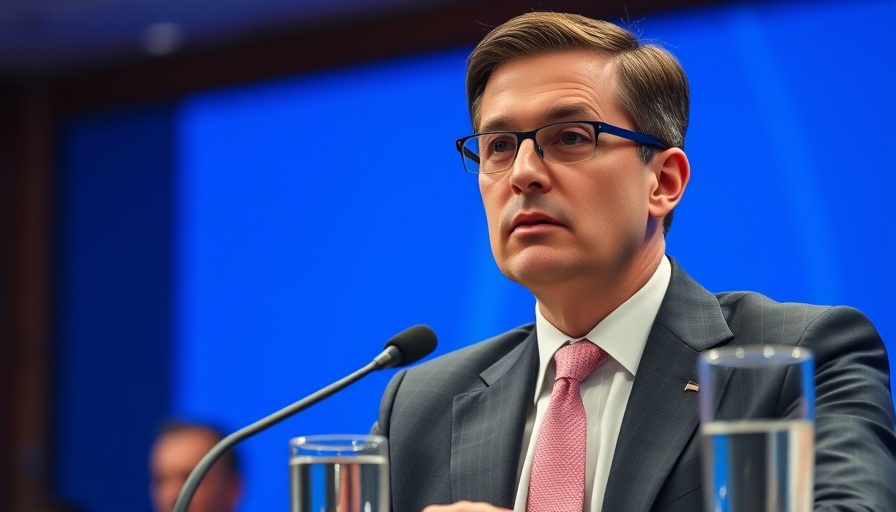
China's Strategic Move Amid Economic Pressure
In an effort to bolster its economy stifled by ongoing trade tensions, particularly rising tariffs from the U.S., China recently made a significant shift in its monetary policy. The People’s Bank of China (PBOC), led by Governor Pan Gongsheng, announced a reduction in a crucial interest rate coupled with a decreased reserve requirement for banks. This step aims to stimulate lending, encouraging local businesses and consumers to bolster their spending amidst a challenging economic climate.
Understanding the Wider Economic Context
The recent adjustments come as part of a broader strategy to mitigate the effects of the tariffs imposed during the Trump administration. These tariffs have heightened uncertainty for Chinese manufacturers and exporters, directly impacting growth rates. Experts warn that while these interest rate cuts may provide temporary relief, additional stimulus measures could be necessary to truly invigorate the economy, especially as global market conditions fluctuate.
The Ripple Effects on Business Innovation
As China navigates these economic challenges, the focus on business innovation becomes crucial. Lowering borrowing costs can foster a more favorable environment for startups and established businesses alike. Venture capitalists might see this as an opportunity, leading to heightened investments in tech and sustainability projects, particularly in regions like Silicon Valley where entrepreneurship thrives.
Predictions and Future Trends in the Market
Looking forward, analysts suggest that these monetary policy changes could signal a shift in financial strategies not only within China but also globally. As international businesses adapt to fluctuating tariffs and trade policies, we may see increased collaborations and innovations focused on sustainability and resilience. Companies that pivot towards eco-friendly practices and technologies might emerge as leaders in a rapidly evolving marketplace.
Economic Forecasts and Business Strategies
For business professionals keeping a pulse on the market, understanding these monetary shifts is vital. Companies must be ready to adjust their strategies based on economic forecasts and potential changes. Staying informed about governmental policies, including possible further adjustments to interest rates, can enable businesses to better plan for the future and tap into growth opportunities. Furthermore, as real estate becomes increasingly influenced by these economic factors, leaders in commercial development must remain vigilant in adapting to the changing business landscape.
In conclusion, while China's recent monetary policy adjustments demonstrate proactive measures to combat economic pressures, the full effect on business trends and innovation in the region remains to be seen. Business leaders must stay agile and informed to navigate these developments effectively.
 Add Row
Add Row  Add
Add 



Write A Comment